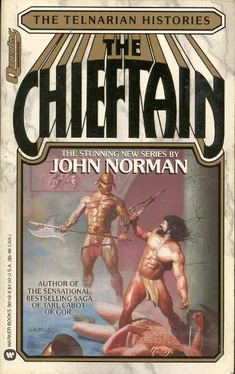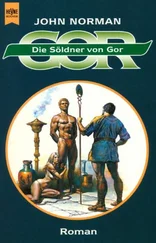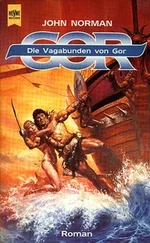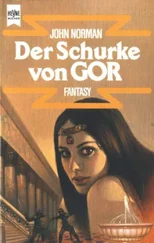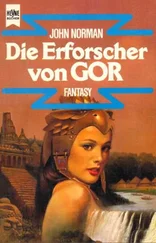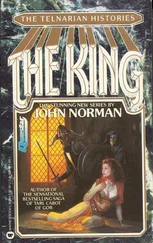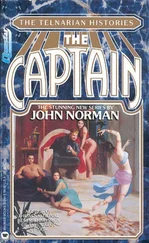“I must go,” said the peasant.
The warm, moist lips of the pay woman pressed against his thigh. It was a kiss, such as might have been that of a slave to her master.
The peasant stepped back from her.
“Return to the bed,” he told her.
She obeyed, and knelt there, her knees half lost in the bed covers, watching him.
“You do not seem like the other women of this world,” he said.
“How so?” she said.
“They seem vain, cold, sluggish, petulant, inert,” he said. He found them not of much interest. He did not know who could.
“They are equals,” she said.
He did not contest this. He did not even, really, understand it. What did it mean to be equal, really? He thought them superior in some ways to men. Certainly they were more beautiful.
“Legally,” she explained, “by law.”
“How can law make what is so exquisitely different the same?” he asked.
“It cannot,” she said.
“You are not like the other women here,” he said.
“No,” she said. “I am not like them.”
“I wonder if they are really women.”
“They are women,” she said. “It is only that they are sleeping.”
“‘Sleeping’?” he asked.
“It is only that they have not yet met their master,” she said.
He regarded her, not speaking.
“Every slave needs her master,” she said. “She is incomplete without him.”
The peasant, not understanding these things, drew shut his cloak, and picked up his sack, that with the long straps, by means of which he could carry it on his back. When he had taken ship at Venitzia, it had carried several loaves of bread. Only part of a loaf was now left.
“You are not from this world,” said the pay woman.
“How do you know?” he asked.
“From the way you handled me,” she said.
“I have a coin,” he said. “Are you certain that you will not accept it?”
“Keep it,” she said.
His staff was by the door.
“If you are questioned,” she said, “tell Boon Thap that you have paid.”
“But I have not,” he said.
“Tell him so, anyway,” she said.
“I do not lie,” he said.
“He will have gone by now, anyway,” she said. “I am sure of it.”
In time, of course, the peasant would have left the vicinity of the village, one of those within the tithing fields of the festung of Sim Giadini. He was strong, and ambitious, and curious, and wondered about the world, and worlds, beyond his village, and the ships that came and went each month at Venitzia, accomplishing their periodic rendezvous with what, to him, seemed no more than a star moving in the sky. It was said to be a vessel, a vessel which could fly like a bird between worlds. Often Brother Benjamin had pointed it out to him. Brother Benjamin, it seemed, had never really expected him to stay. In any event, the peasant would not have taken the hood, and habit. That had never interested him. Too, his decision to leave the village had been hastened by the trouble over Pig. Gathron had struck him with a post. The post had then been broken in two over Gathron’s back. It had taken Gathron no more than two minutes to die. He had died squirming, gasping, eyes bulging, staring, at the peasant’s feet. The peasant had watched this intently, for he had never seen a man die before. But he had seen animals die, of course, and had killed many of them, and then butchered them. So, too, had other young men of the village. He, and the others were familiar with blood, and killing. It was part of their way of life. They thought little of it. Perhaps it is well to make that clear. It may then be easier to understand part of what follows if that is not forgotten. We are not speaking of present times. We are speaking of other times, and other places. He had watched Gathron. It was not much different, Gathron’s dying, from that of the garn pigs, some seven or eight hundred pounds in weight, whose head he and he alone of all the men of the village could snap to the side with his bare hands. The blow was delivered with the flat of the hand, the animal’s neck held in place by the left arm. Still, this was, perhaps, one of the most dangerous, and fearful, things about the peasant, his temper. It would come, in time, to be feared by armies.
“Have you money?” called the pay woman. She had now belted about herself a short smock, not too much unlike, save for its length, that of the peasant women of the village.
“Of course,” said the peasant.
She smiled. “How much?” she asked.
“Five pennies,” said he. We shall use the term ‘penny’ for the coin of lowest denomination on Terennia, and certain other worlds, which seems practical. Too, this suggests what was the case, that the peasant had very little in the way of funds. He had left the festung village with some
seven pennies given to him by Brother Benjamin, who had been his mentor from childhood, those and a sack of bread on his back. He had walked to Venitzia, staff in hand, bread on his back. For the most part, he lived off the country. In this way he conserved the bread as long as possible. It is not hard for a given person, or a small group, to live off the country, at least for a time, if one can distinguish between what is edible and what is not edible, and is not squeamish. To be sure, he did stop at two villages, where he cut wood for his supper. At Venitzia, some days later, he, and some others, arranged to work their passage to Terennia, caring for cattle on the transport. The crew of the transport did not care for this work which was time-consuming and foul. The peasant, however, and some five like him, did not object. The smells, and the sights and sounds, were not, on the whole, unlike those of their villages.
“Wait,” said the pay woman, and, going to a covered bowl, one on a nearby shelf, and removing the lid, she drew forth a silver darin , which would be the equivalent of twenty pennies. She thrust the darin into his sack, which he had slung on his back. She looked into his eyes, and then, suddenly, stripped from her wrist a silver bracelet, doubtless worth considerably more than the darin . This, too, now not looking at him, she thrust into the sack.
“You will need money,” she said. “You can sell the bracelet.”
He protested, but she would hear nothing of it. Indeed, she turned away from him. “Go,” she said.
He had then turned and left.
“Ho,” said Mujiin, turning his horse. “There,” said he, “one follows.” At the same time he removed his lance, black, long, slender and resilient, from his back.
“It is a boy,” said Hunlaki, too, turning his mount.
“You are sure?” inquired Mujiin.
“Yes,” said Hunlaki. Hunlaki had seen him before. He had rather hoped that Mujiin would not. But Mujiin, too, was sharp-eyed. It was not just any whom the Heruls used as their outriders their flankers. And one looks often to the rear. And there was not much cover here, on the plains of Barrionuevo, here, away from the river.
“He is mad,” said Mujiin.
“Perhaps,” said Hunlaki. He did not free his own lance.
Hunlaki had hoped the pursuer, a ragged, blond-haired lad, perhaps no more than fourteen or fifteen years of age, one who moved unsteadily, who was perhaps lamed, or ill, who carried a staff, would drop back, would fall back, would think the better of his pursuit, before Mujiin saw him.
“I will guess birds with you, or clouds,” said Mujiin.
“One thrust?” asked Hunlaki.
“Let the birds, or the clouds, decide,” said Mujiin.
On the plains, in the long hours on horseback, the Heruls had found many ways to pass the time, to while it away while keeping the herds together. There were the poetries, the songs, the games. Some of them had marvelous memories, and could call songs which took more than two days to recount. They were fond, too, of stories, as well as women, and war. Also, they were fond of gamblings of diverse sorts, horse races, the fights to the death of matched war dogs, such things. In the guessings of birds and clouds it was not fair to look behind one, not until the time was called.
Читать дальше
